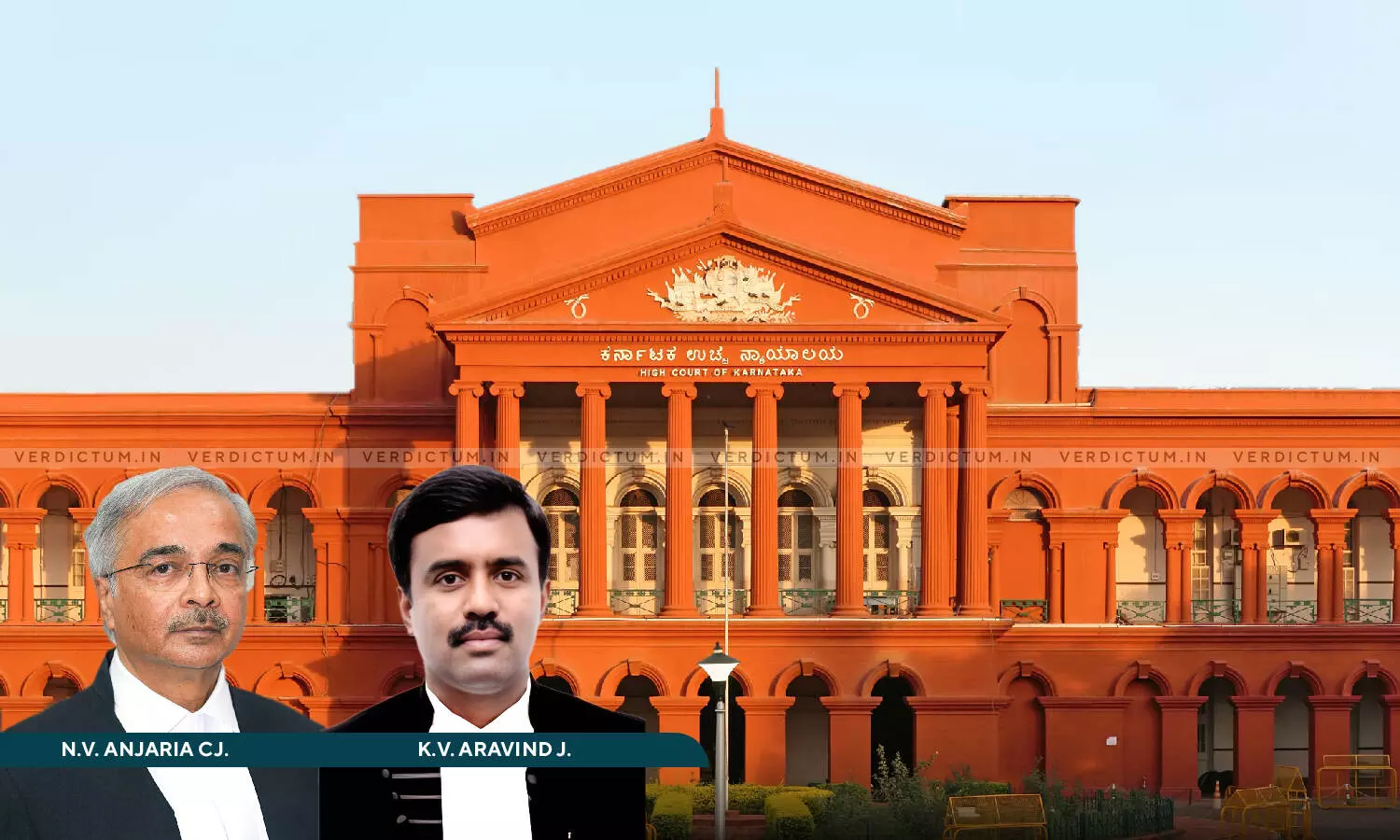
Forfeiture Of Earnest Money Mandatory Once Auction Purchaser Unable To Pay Balance Amount Of Sale Consideration Within Statutory Time Limit: Karnataka HC
 |
|The Karnataka High Court held that the forfeiture of the earnest money has mandatory application once the auction purchaser is unable to pay the balance amount of sale consideration within statutory time limit.
The Court held thus in a writ appeal preferred by the Canara Bank, challenging the judgment of the Single Judge by which a mandamus was issued to refund the amount of Rs. 3.25 crores to the auction purchaser.
A Division Bench comprising Chief Justice N.V. Anjaria and Justice K.V. Arvind observed, “In light of the law laid down by the Supreme Court in Shanmugavelu (supra), there is no escape from the position of law that Rule 9(5) of the Rules, 2002 providing for forfeiture of the earnest money has mandatory application once the auction purchaser is unable to pay the balance amount of sale consideration within statutory time limit contemplated for the purpose. The Rule 9(5) has the compulsory consequence of forfeiture of the earnest money in the event of commission of default by the auction purchaser in paying the balance amount.”
Advocate Shetty Vignesh Shivaram appeared for the appellant while Senior Advocate Aditya Sondhi appeared for the respondents.
Brief Facts -
The appellant Bank conducted an e-auction of a property in 2021 under the provisions of Securitisation and Reconstruction of Financial Assets and Enforcement of Security Interest Act, 2002 (SARFAESI Act), seeking to recover the amount due. The respondents participated and purchased the property as successful bidder paying Rs. 3.25 crores which was 25% of the bid amount. The balance 75% amount to the extent of Rs. 9.75 crores was to be paid within 15 days as per the condition of the bid towards final bid amount. As the sale was confirmed in favour of the respondents, they were intimated to pay the said remainder amount.
On January 13, 2022, the respondents sent a communication seeking extension of 30 days to pay the same and the Bank replied by asking them to remit the same on or before January 28. On the said date, the respondents again sent a communication seeking extension of 30 days. It was stated that they were in the process of securing the amount and the loan process was underway with the HDFC Bank. By way of reply of even date, the Bank intimated that if the amount is not paid by February 10, 2022, the sale in their favour will be cancelled and the amount paid will be forfeited without further notice. The respondents then filed a writ petition before the High Court seeking direction to refund their amount and the Single Judge allowed the same. Being aggrieved, the appellant approached the Division Bench.
The High Court after hearing the arguments from both sides, noted, “The Supreme Court negatived the contention of the auction purchaser that the Authorized Officer under Rule 9(5) of the Rules was conferred with unguided powers, stating that the SARFAESI Act is a special legislation with an overriding effect over general law and that forfeiture of earnest money deposit is statutorily provided as a consequence of failure of the auction purchaser to deposit the balance amount.”
The Court elucidated that the security deposit is liable to be forfeited once the bidder fails to make good the balance of the bided price within stipulated time and that the forfeiture of security deposit amount is a statutory consequence.
“In the facts of the case, no special circumstance exists which would justify the demand for return of earnest money by the petitioner. There is no unjust enrichment on the part of the Bank”, it said.
The Court added that, when the bidder failed to deposit the balance amount within the statutory period despite having been granted extension, the forfeiture of his earnest money deposit was a statutory consequence.
Accordingly, the High Court allowed the appeal and set aside the impugned judgment.
Cause Title- Canara Bank v. Subramanya Rao K & Anr.
Appearance:
Appellant: Advocate Shetty Vignesh Shivaram
Respondents: Senior Advocate Aditya Sondhi and Advocate A.S. Ravi Kumar.